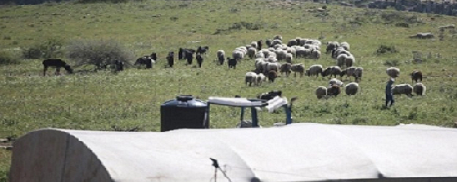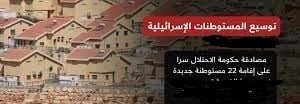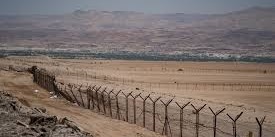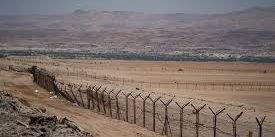By: Madeeha Al-A’raj
The National Bureau for defending land and resisting settlements ( nbprs ) stated in its latest weekly report , it was recently revealed that the Israeli Civil Administration began preparing regulations that enable the legalization of about 35 illegal pastoral outposts, provided that the Secretary-General of the ‘Amana Settlement Movement’, Ze’ev Hevar Zambish, will follow up those procedures with the Civil Administration teams that determined the number of the outposts, where there are at least 50 such outposts in the West Bank. Shepherd settlers control about 240,000 of pastoral areas in the West Bank i.e. about 7% of the area “C” according to the Oslo Accords.
These shepherd farms are mostly established on lands classified as ‘state property’ and sometimes in areas close to regional border military training areas, nature reserves or private Palestinian lands, with their impact is much worse because the herds that grow there need extensive grazing lands, and thus the development of a system in which settlement outposts control a maximum area with a minimum number of residents, while most of the settler shepherd farms in the West Bank operate without a grazing contract from the Israeli Ministry of Agriculture, and a few have received those contracts from the Settlement Department.
The Civil Administration plans to establish an agricultural department that will discuss and agree to rehabilitate the grazing areas for Israeli settlers. It is expected that those procedures and regulations will make it difficult for Palestinian shepherds to continue grazing their flocks, and they will have to obtain permits that were not required from them in the past to graze with all the risks that this entails. Those measures and systems will have very serious consequences for the Palestinians, and will be a disaster for Palestinian landowners who own lands near these outposts, as well as a disaster for the agricultural and livestock sector in the West Bank.
At the same time, the “Organization and Building Committee” at the Occupation Municipality in Jerusalem approved the establishment of a new settlement neighborhood on the lands of the Beit Safafa town, which would prevent the townspeople from expanding and developing their town and prevent them from building in the future. The neighborhood was named as ‘Givat Hashaked’ that includes 700 settlement housing units. The new settlement neighborhood will be built on 38 dunums of Palestinian land to build them, and a synagogue, a school and places of entertainment.
It is clear from the ongoing deliberations the possibility of raising the number of settlement units to 750 units after the occupation authorities launched a massive bulldozing campaign last March during which dozens of trees were uprooted.
In Jerusalem, the Supreme Planning Council at the so-called Israeli Civil Administration is looking into plans to build 3,412 settlement units in the E1 settlement east of the occupied city on an area of 2,100 dunums, where the council is expected to discuss the main settlement plans in E1, they are likely to be approved with all the geopolitical ramifications that this entails, as Israeli construction in this area threatens to displace about 3,000 Palestinians living in small Bedouin communities in the area threatened by forced displacement – Jabal al-Baba, Wadi al-Jimal, Bir Al-Maskoub, Wadi Snisel, and Abu George’s Bedouins, at the risk of forced displacement, as well as separating the northern West Bank from its south, closing the eastern region of Jerusalem completely, and besieging the areas of Anata, Al-Tur, and Hizma by constructing settlements.
List of Israeli Assaults over the Last Week Documented by the National Bureau:
Jerusalem:
- Forcing a family in Silwan to forcibly demolish their house under the pretext of building without a license, to avoid paying fines and demolition fees, and another notification to demolish a house in the town of al-Isawiya for the same pretext.
- Assaulting al-Maqdisi, Nidal al-Natsheh, from the Silwan town, he sustained bruises in the head.
- Demolishing a retaining wall in Jabal Mukaber on the pretext of not having a license, and 3 livestock farms in the Waqf lands at the entrance to Anata.
- Demolishing the headquarters of the Bait Al-Maqdis Equestrian Club, a punchier shop, a car wash, warehouses, the foundations of a house and retaining walls in the Al Walaja village, on the pretext of not having a license.
- Forcing young man, Issam Sharafed to self-demolish his house in the Wadi Qaddoum Neighborhood in the Silwan town, south of Al-Aqsa Mosque, under the pretext of building without a license.
Hebron:
- Closing the entrance of the village of Beit Anun, east of Hebron, with cement blocks in preparation for setting up a checkpoint for the occupation soldiers, hindering leaving and entering of the citizens to the village.
- Erecting tents in the lands of citizens in the village of Birin, south of Hebron, and raised the Israeli flag and wrote racist slogans in preparation for the establishment of a new settlement outpost.
Ramallah:
- Bulldozing citizens’ lands in the Sinjel town, north of Ramallah, covering about 8 dunums, located in an area targeted by the occupation, with an area of 5,200 dunams. Knowing that the targeted area is surrounded by 3 settlements and a camp for the occupation forces, namely: Shilo from the east, Givat Harel from the north, and Givat Har’ah from the north, and army camp from the south.
- Injuring a citizen with live bullets in the hand, and 5 others sustained bruises and fractures, after settlers attacked them under the protection of the occupation forces.
Nablus:
- Targeting a number of greenhouses between the villages of Zawata and Naqoura, northwest of Nablus, destroyed the contents of a number of them near the “Al-Masoudia” checkpoint on the Jenin-Nablus road, and uprooted the entire fence surrounding the land and stole it.
- Dangers of demolishing 5 facilities and razing a road in the Deir Sharaf town, west of Nablus.
- Stealing a water pump worth NIS 20,000 in an irrigation project in the Beit Dajan town, east of Nablus, on an area of 17 dunums, they also destroyed the fence around the land, and the gate.
- Injuring a citizen in the Salem village, east of Nablus, while he was on his way to his land located in the village plain.
- A large numbers of settlers stationed on the main roads linking the cities of Nablus, Tulkarm and Ramallah, and they attacked citizens’ vehicles. Junctions also witnessed a wide spread of settlers, especially from Hawara Junction to Jeit one.
- assaulting and sprayed 4 civilians with pepper gas on the road between Nablus and Tulkarm.
- Attacking a house in the Burin town, south of Nablus, and destroyed a vehicle.
Salfeet:
- Besieging farmers inside their lands in the Kafr ad-Dik town, west of Salfeet, while reclaiming their lands in the western region of the town. Moreover, the occupation forces closed the roads leading to the area.
Jordan Valley:
- Setting up 2 tents near the Al-Auja Spring, north of Jericho, under the protection of the occupation army, and they pursued the citizens in the area and expelled them.
- Extremist settlers and began a march at the eastern entrance to the village of Atouf under the protection of the occupation forces, and seized a tractor in the village
 المكتب الوطني للدفاع عن الارض ومقاومة الاستيطان منظمة التحرير الفلسطينية
المكتب الوطني للدفاع عن الارض ومقاومة الاستيطان منظمة التحرير الفلسطينية




